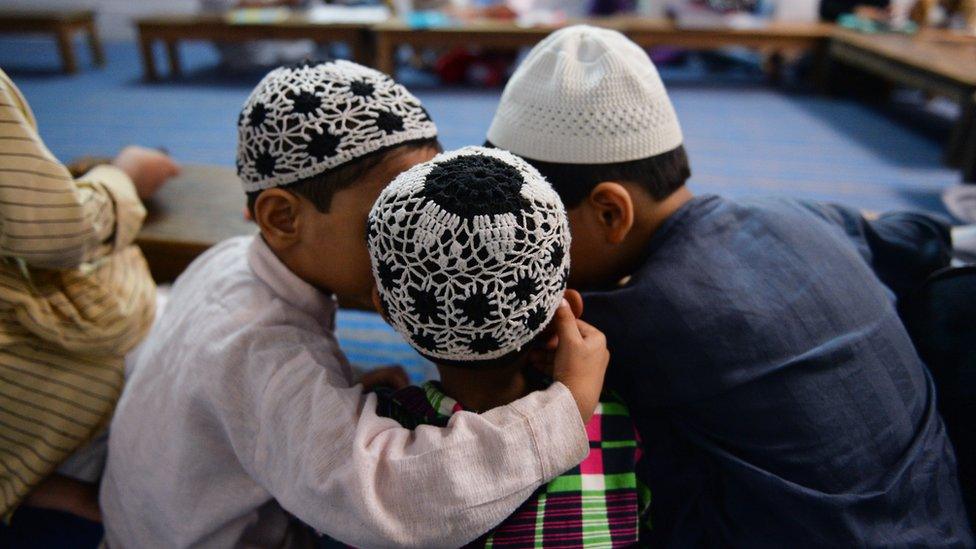India election 2019: The mystery of India's 'missing' Muslim politicians
- Published
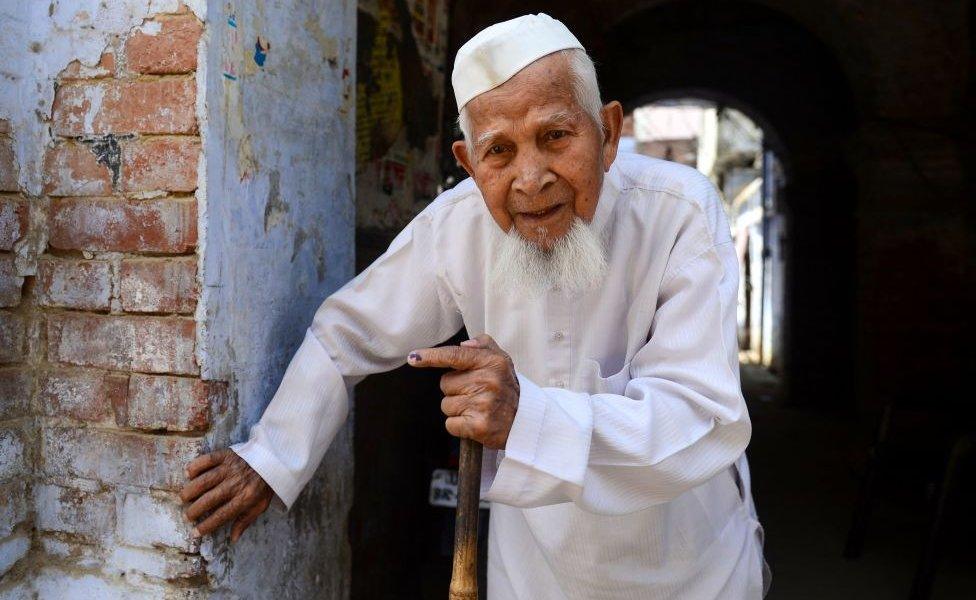
Indian Muslim have been enfeebled by shrinking political representation
India has the world's second largest Muslim population, but there are very few lawmakers from the community. The BBC's Priyanka Pathak reports on the community's shrinking political representation.
On a recent warm morning in Madhubani, a constituency in the eastern state of Bihar, political workers, local businessmen and activists gathered around Shakeel Ahmad in a narrow lane.
Soon after, Mr Ahmad, who is contesting for the seat, sped away in his white motorcade - into a dusty lane and onto yet another blistering day of campaigning.
The 63-year-old is a former member of the main opposition Congress party. But in April, when the party announced that it would not field him as a candidate in Madhubani, he did something unprecedented.
He resigned, ending his decades-long association with the Congress. He then filed his nomination as an independent candidate from the same seat, which he has won twice before.
Allow X content?
This article contains content provided by X. We ask for your permission before anything is loaded, as they may be using cookies and other technologies. You may want to read X’s cookie policy, external and privacy policy, external before accepting. To view this content choose ‘accept and continue’.
It was a startling decision - and one that was spurred by widespread Muslim support. It revealed the resentment and frustration among Indian Muslims who are increasingly concerned about their shrinking political representation.
Allow X content?
This article contains content provided by X. We ask for your permission before anything is loaded, as they may be using cookies and other technologies. You may want to read X’s cookie policy, external and privacy policy, external before accepting. To view this content choose ‘accept and continue’.
The governing Bharatiya Janata Party (BJP) has fielded just seven Muslim candidates in the ongoing general election - it's contesting 437 seats in the 545-member lower house of parliament. It had fielded the same seven candidates in 2014 too, but none of them won. It was the first time in India's history that the government had no Muslim members of parliament.
In the 2014 election, Congress contested 464 seats but fielded just 31 Muslim candidates - of those, only seven won. Much hasn't changed in this election - only 32 of the party's 423 candidates are Muslim.
The Congress' decision not to field Mr Ahmad - a senior party spokesperson - was surprising. He is no ordinary candidate. He had served as the party's general secretary and as a junior minister when Congress was in power; his father and grandfather were both Congress leaders and lawmakers in Bihar's state assembly.
"Shakeel Ahmad, who has been such a big Congress leader, has to beg for his own seat. He is being brave now but he should have left long ago. Only Muslims can make Congress win," said Maulana Anisur Rahman Quasmi, secretary of Imarat Shariah, a socio-religious Islamic organisation in Bihar. "This is a conspiracy against us. You [Congress] tell Muslims to vote for you but you don't give them tickets."
Congress has long pitched itself as a secular party that represents the interests of minorities - and is therefore distinct from the Hindu nationalist BJP. But this courtship of Muslim voters has not translated into tickets for Muslim candidates. Of the more than 120 candidates contesting in Bihar, only eight are Muslims.
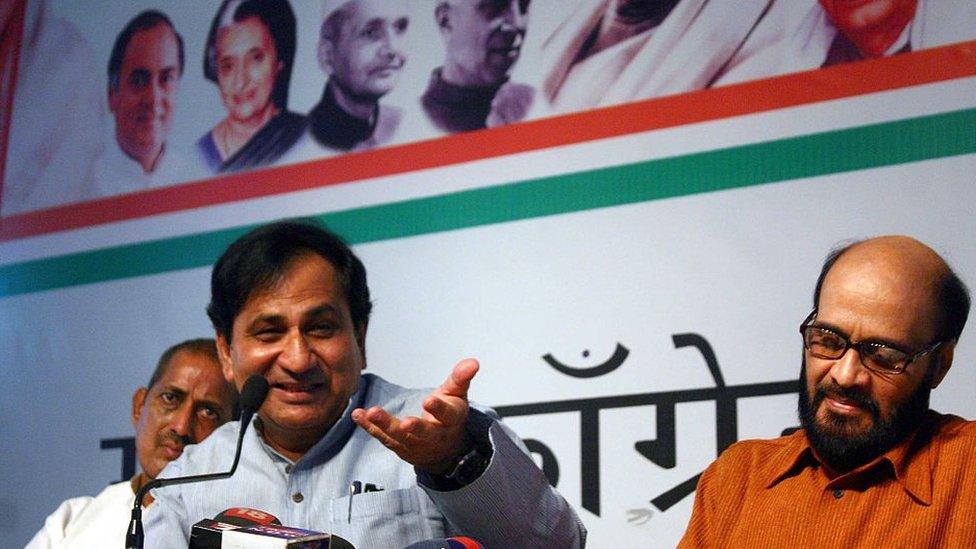
Mr Ahmad (c) had been Congress politician for some 30 years
Last month, senior Muslim Congress leaders in Delhi - Shoaib Iqbal, Martin Ahmed, Hasan Ahmed and Asif Mohd Khan - warned party president Rahul Gandhi, external in a letter that people resented the fact that no Muslim candidates were contesting in Delhi. They urged him to allocate at least one seat to a Muslim.
"Keeping in view the number of Muslim votes, the contribution and track record of winning elections by Muslim leaders, one ticket must be given to a Muslim leader either from Chandni Chowk or North-East Delhi parliamentary seat," the letter said.
But Mr Gandhi ignored their plea. The party's list of candidates in Delhi does not include any Muslims.
Congress has defended its ticket allocations - the party's national media coordinator, Sanjeev Singh, told the BBC, "We have done what we could and given tickets wherever it was possible to give. In fact we have given [one] more ticket than we did in the 2014 election. But we are also constrained by coalition politics."

India votes 2019

Muslim political representation is particularly relevant now because while the community's population in India has more than doubled from 68 million in 1981 to 172 million in 2011, the number of Muslim MPs has nearly halved from 49 in 1980 to 22 in 2014.
Their representation in parliament shrank from 9% in 1980 to 4% in 2014 - and the gap between the Muslim population and parliamentary representation increased from a mere 2% to 10% in that period.
This has happened gradually and over decades. It is not, as many are quick to suspect, just the result of a Hindu nationalist wave sparked by PM Narendra Modi's landslide win in 2014.
Muslim activists say their greater complaint is with the Congress for denying them representation. "They have created such a terrible fear of the BJP in Muslim minds that now, even if they don't give us a single ticket, Muslims will not say a word against it," said Mustaqim Siddiqui, member of United Muslim Political Empowerment.
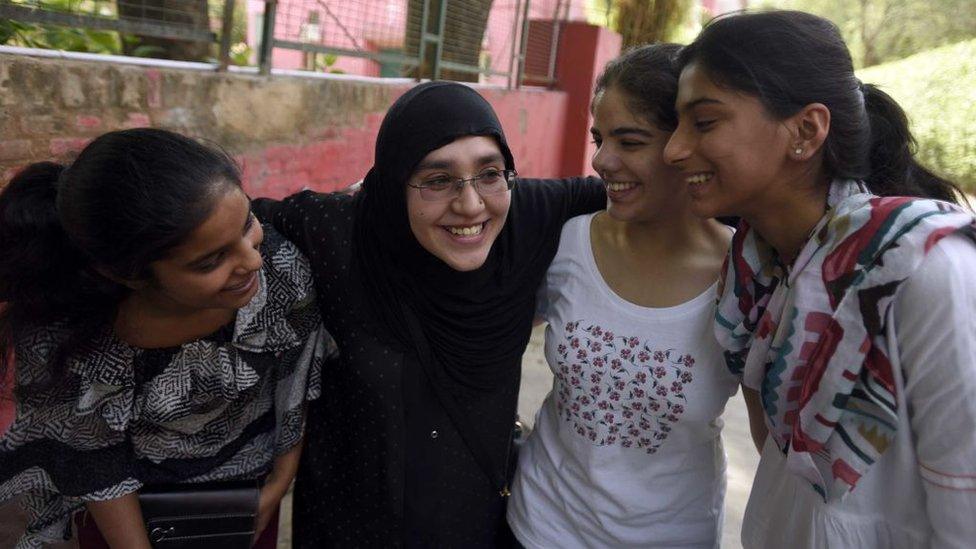
Muslims make up about 15% of India's population
He added that despite Muslim candidates not being given tickets, Congress still appeals to them to consolidate their vote. "They tell us that if they give tickets to Muslims, there will be polarisation of votes in those constituencies. They also say that by not giving tickets to Muslims, they are proving to the electorate that they are not indulging in Muslim appeasement," Mr Siddiqui said.
Others point out that the Congress has ignored the internal dynamics and rifts within the Muslim community.
"The national narrative is that caste has no place in Islam and that all Muslims have only one political identity. It is ironic that Muslims are expected to defeat vote bank politics by voting collectively," said Hilal Ahmed, a professor of political Islam at the Centre for the Study of Developing Societies.
Muslims say they don't vote on their issues alone.
"Everyone wants better streets, better schools and better jobs. But they are making it all about religion. Shakeel Ahmad has done good work here, but he is not given a ticket because he is Muslim. Such a thing is wrong," said Mohammad Qadri, a resident of Madhubani. "We did not hope for anything from the BJP. But we had hopes from Congress."
And yet, religious leaders said, they still exhort the community to vote for Congress because they feel like there is no other choice. "We are like the bonded labourer who may be technically free to leave, but won't. As a community, our population has increased but our youth has no vision, no education…so, like that bonded labourer, we will keep doing (voting) like how our ancestors did," Maulana Quasmi said.
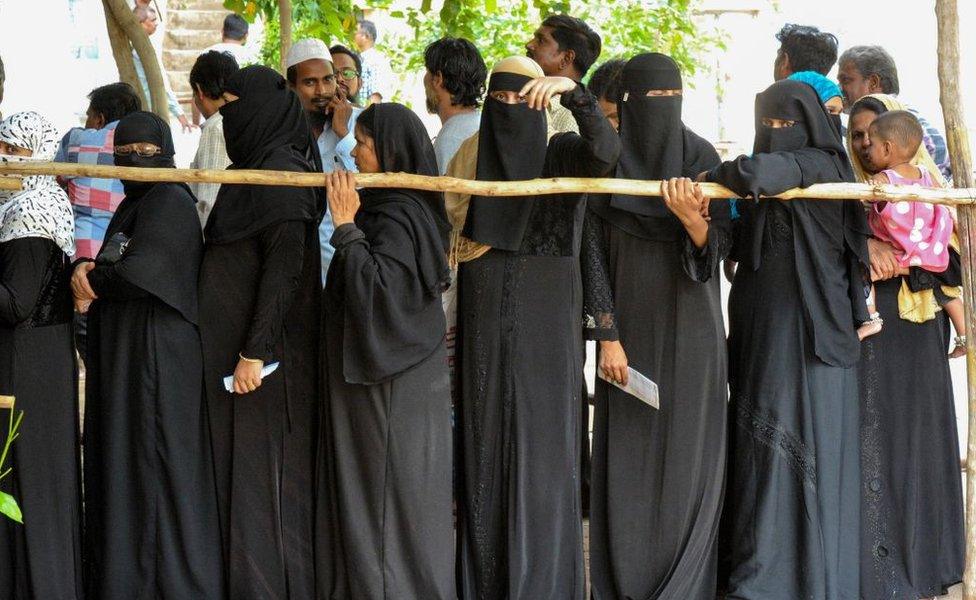
Political scientist Christopher Jaffrelot, whose research has examined who speaks up for Muslims in the Indian parliament, said in a 2016 talk that it was important to have "your people" represent your interests in elected bodies because if not, "there will be less people in defence of the minorities".
His research had focused on questions and debates related to riots, affirmative action and Muslim family law - and he said he had found that more than 23% of all questions about Muslim issues were asked by Muslim MPs. So just 4% of MPs were asking more than a fifth of the questions about issues that affected India's Muslims.
Muslims realise this. "We need someone to speak for us," said Ataurrahman Ansari, a social activist in Madhubani. "Our [Muslim] weavers are forced to leave their homes and go to Mumbai to look for work…who will speak for us if they don't even give us a chance to run?".
Now Muslims are trying different ways to craft a long-term strategy to counter their marginalisation.
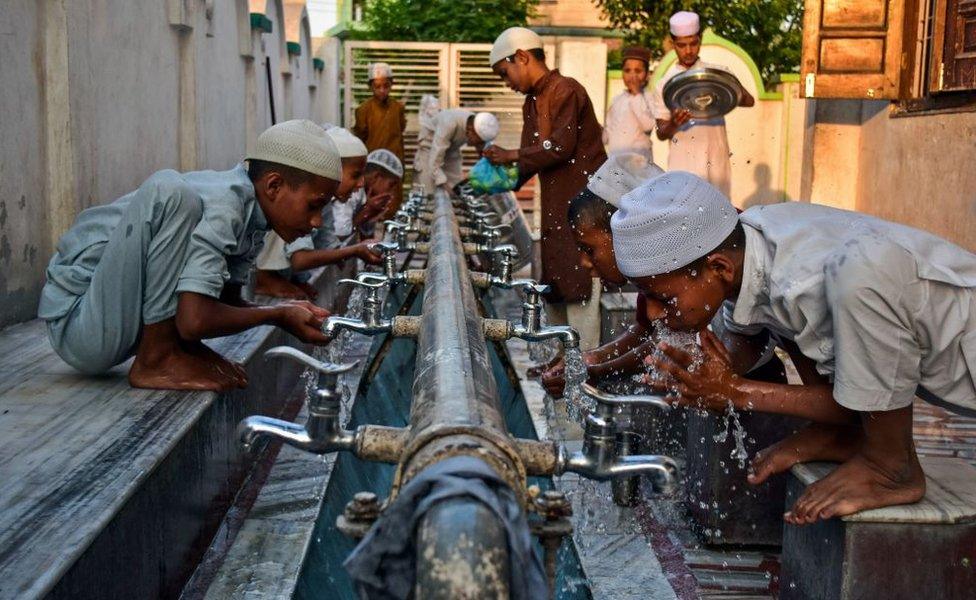
For one, Muslim voters are choosing to break away from the Congress and vote for the BJP in Karnataka, West Bengal and Rajasthan, according to a pre-poll survey that was conducted in March 2019.
And then there are candidates such as Mr Ahmad, who make the case for Muslim representation by breaking away from their party to contest independently.
The community is also hopeful that a new generation of Muslim leaders will emerge - those who can lead the country, not just its Muslims.
"Muslims should now think about taking that leadership instead of relying on what is given to them by [political] parties," Maulana Qasm said.
"What we need is leaders like at the time of independence - Muslim leaders with vision and courage who belonged not only to Muslims but to the whole country."
- Published30 May 2014
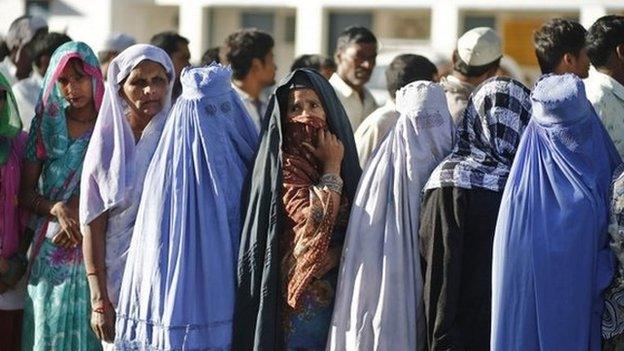
- Published13 January 2018
